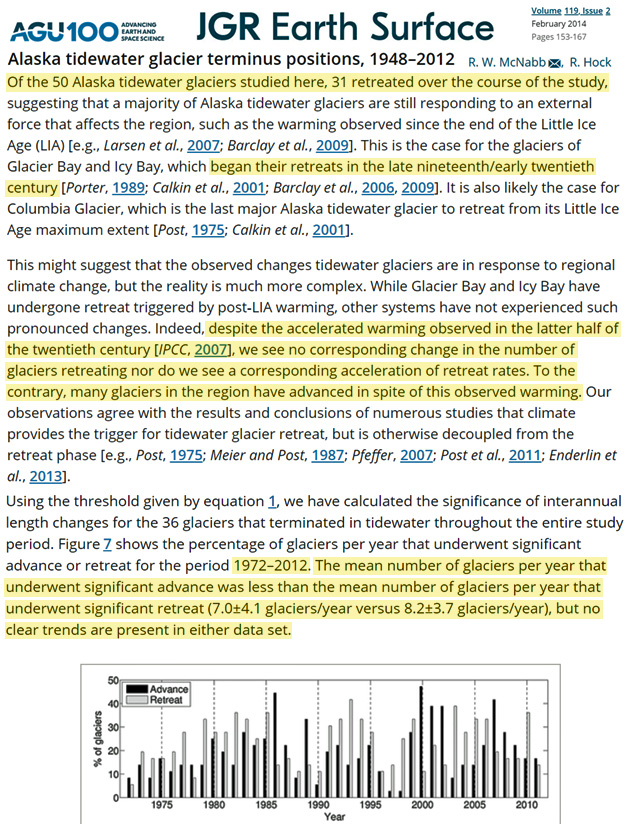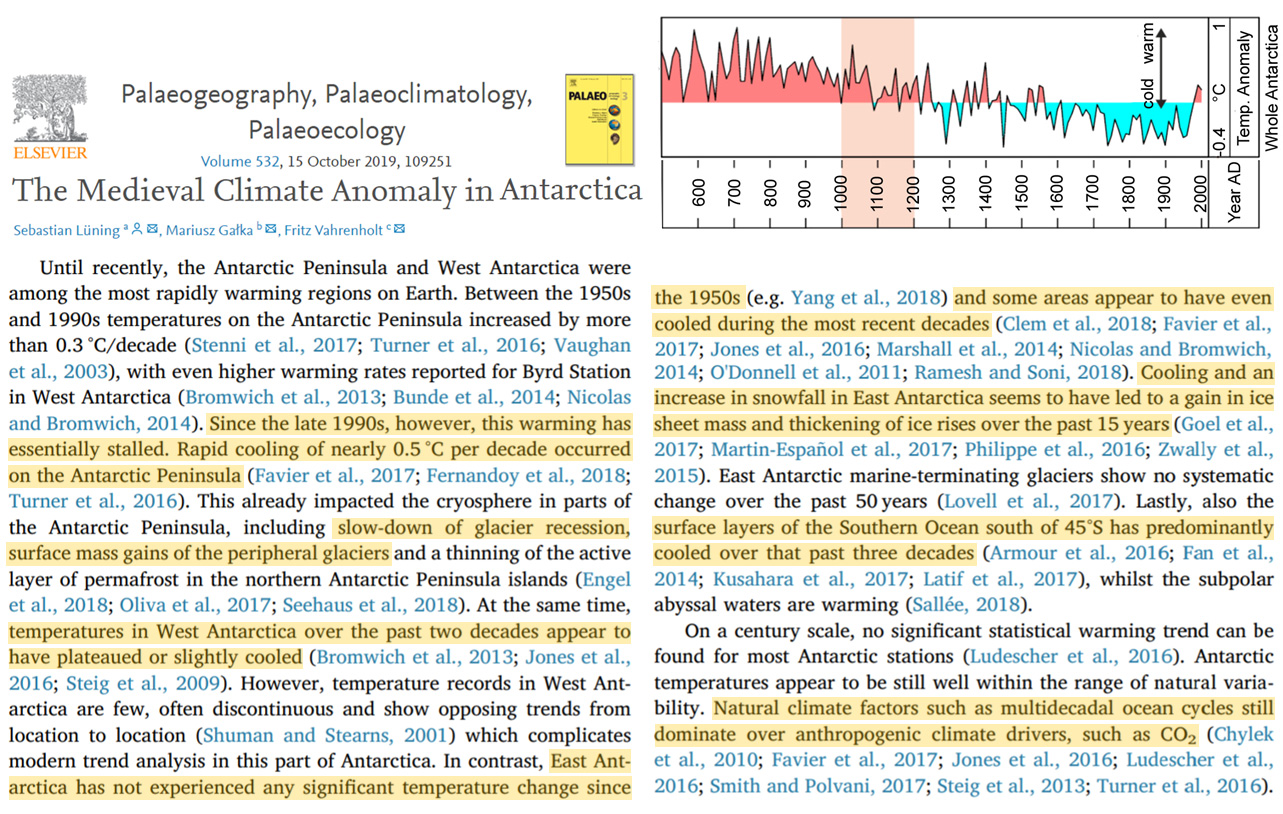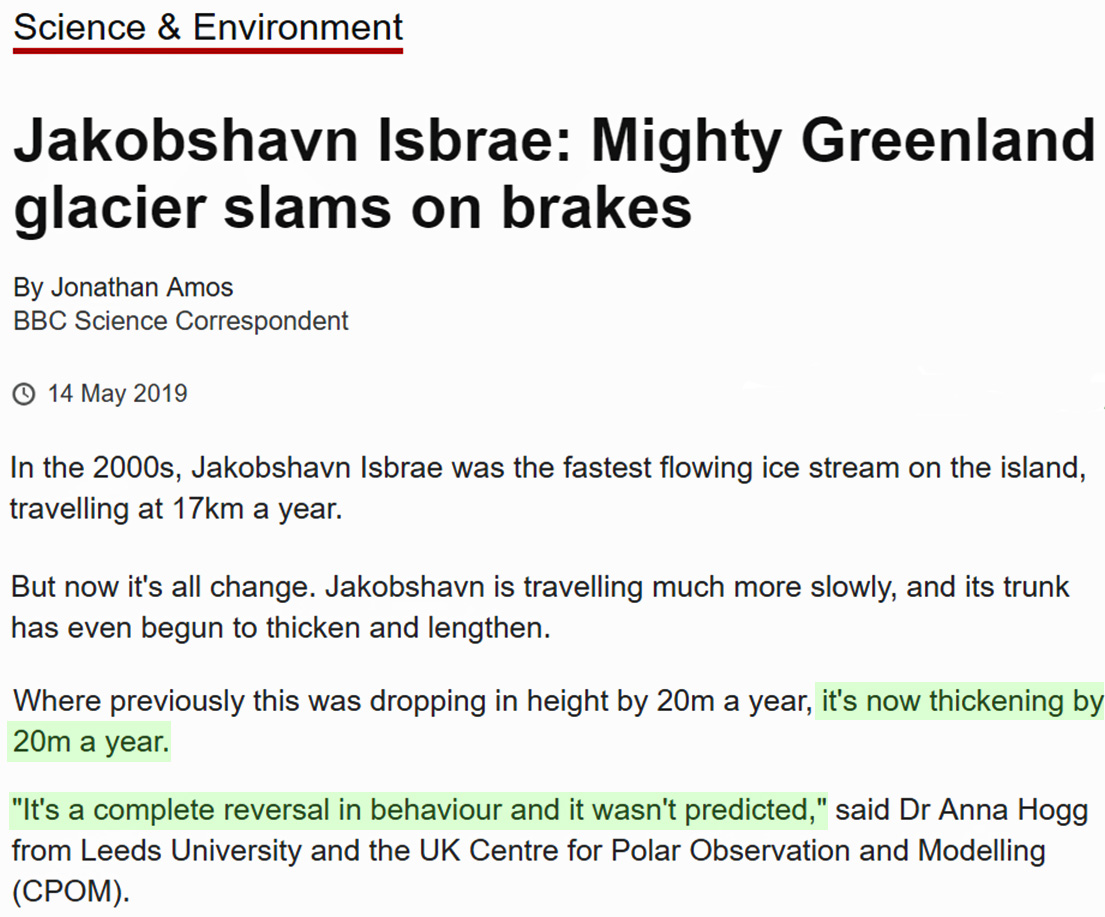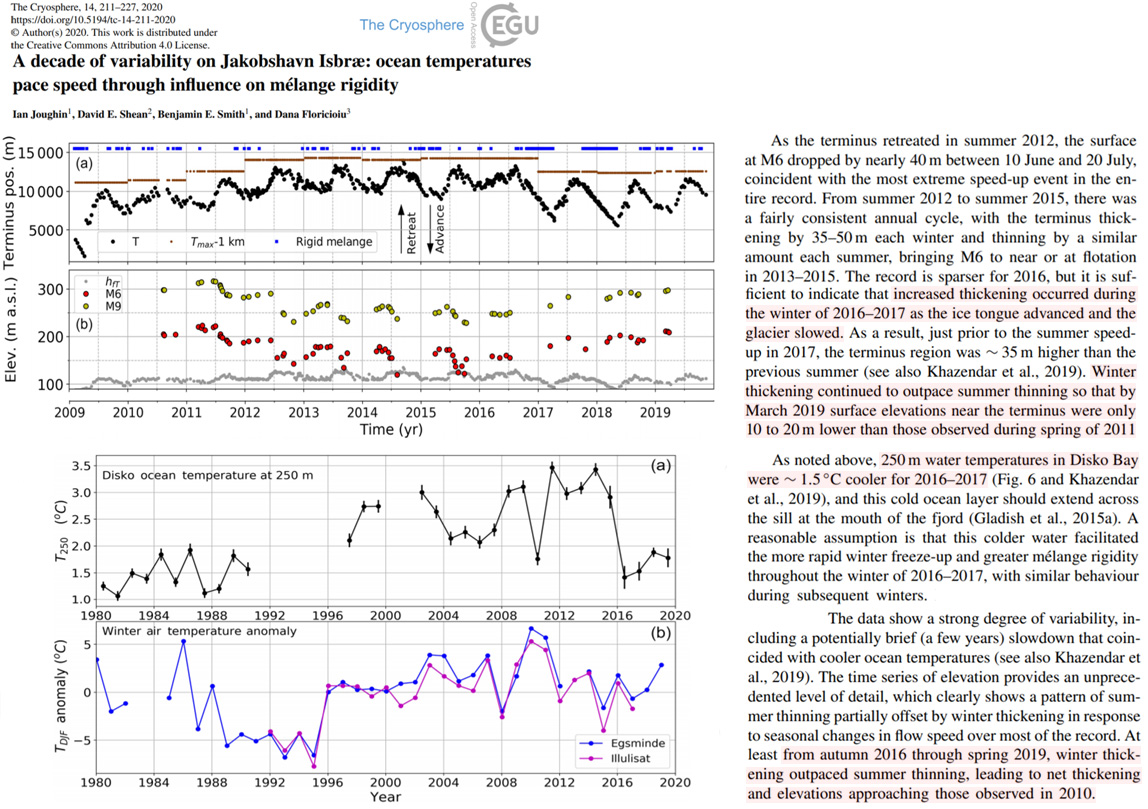Greenland’s largest glacier (Jakobshavn) has quite abruptly thickened since 2016. The thickening has been so profound the ice elevations are nearly back to 2010-2011 levels. The nearby ocean has cooled ~1.5°C – a return to 1980s-era temperatures.
The world’s glaciers have not been following along with the CO2-driven catastrophic melting narrative.
Alaska

Image Source: McNabb and Hock, 2014
Antarctica
In the Southern Hemisphere, an accumulating collection of (29) referenced studies (Lüning et al.,2019) indicate that not only has the Southern Ocean, Antarctic Peninsula, West Antarctica, and East Antarctica been cooling or not warming in recent decades, but many regional glaciers have begun advancing again.

Image Source: Lüning et al.,2019
Greenland
Greenland’s ice sheet mass losses have significantly decelerated since 2013 – a reversal from the rapid retreat from the 1990s to 2012 driven by cloud forcing and the NAO (Ruan et al., 2019).
The 47 largest Greenland glaciers also experienced a “relatively stable” period of rather insignificant retreat from 2013 to 2018 (Andersen et al., 2019).
Only 21 of the 47 Greenland glaciers retreated in 2018, 12 advanced, and the other 14 showed no trends in either direction (Polar Portal, 2019).
Greenland’s largest glacier, Jakobshavn, earned headlines in 2019 for it’s surprising and non-predicted rapid thickening in recent years.

Image Source: BBC, 2019
New Study
A new study (Joughin et al., 2020) finds that the Jakobshavn glacier thickening that began in 2016 has continued apace, and ice elevation has now nearly completely returned to 2010/2011 amplitudes.
The authors attribute much of the glacier advance to the rapid 1.5°C ocean cooling impacting the region in recent years.
Ocean temperatures have returned to 1980s-era levels.






[…] über New Study: Greenland’s Largest Glacier Has Rapidly Thickened Since 2016…Fueled By 1.5°C Regiona… […]
[…] Read More […]
The Taku Glacier, just inland from Juneau Alaska it is one of the most impressive alpine glaciers in a temperate zone.
In 1980 I worked on a MOS2 prospect at the head of a glacier that flowed south into the Taku River.
So I have been interested in the area for a long time.
Then last year I came across a chart showing that the Taku Glacier had been advancing for some 15 years.
To 2014.
The is a USGS office Juneau and I talked with one guy–“geo” to “geo” and while he was friendly, he did not have the continuously updated data.
But his superior did.
Talked with him in the same friendly way. He did keep the data up to date but would not share it.
Wonder why?
As an aside, we would chip some ice off the glacier near our camp. In declaring the ice 100 years old it turned our 7-year old Scotch in a vintage of 20 years old.
Made sense.
I also note from https://www.sciencedirect.com/science/article/abs/pii/S0169555X19304489
The January 2018 to September 2019 surge of Shisper Glacier, Pakistan, detected from remote sensing observations
Irfan Rashida, Ulfat Majeeda, Azra Jana, Neil F.Glasser
Pakistan’s Shisper Glacier is advancing also.
Humm, are we sure that we left the LIA or was it just a pause before more cooling returns?
[…] https://notrickszone.com/2020/02/17/new-study-greenlands-largest-glacier-has-rapidly-thickened-since… […]